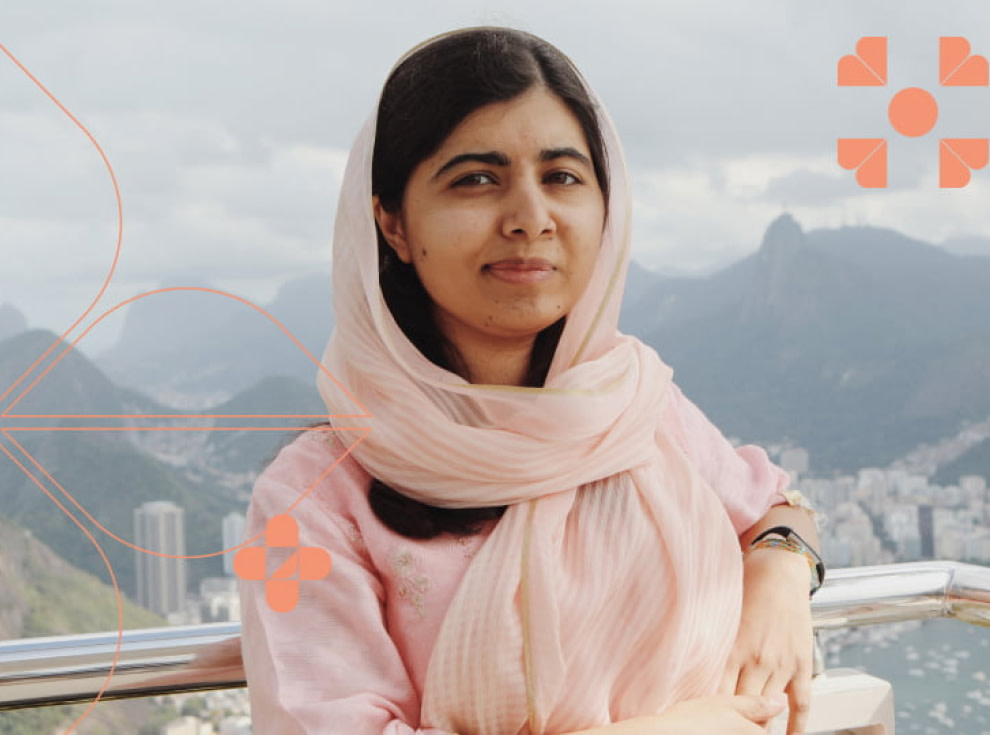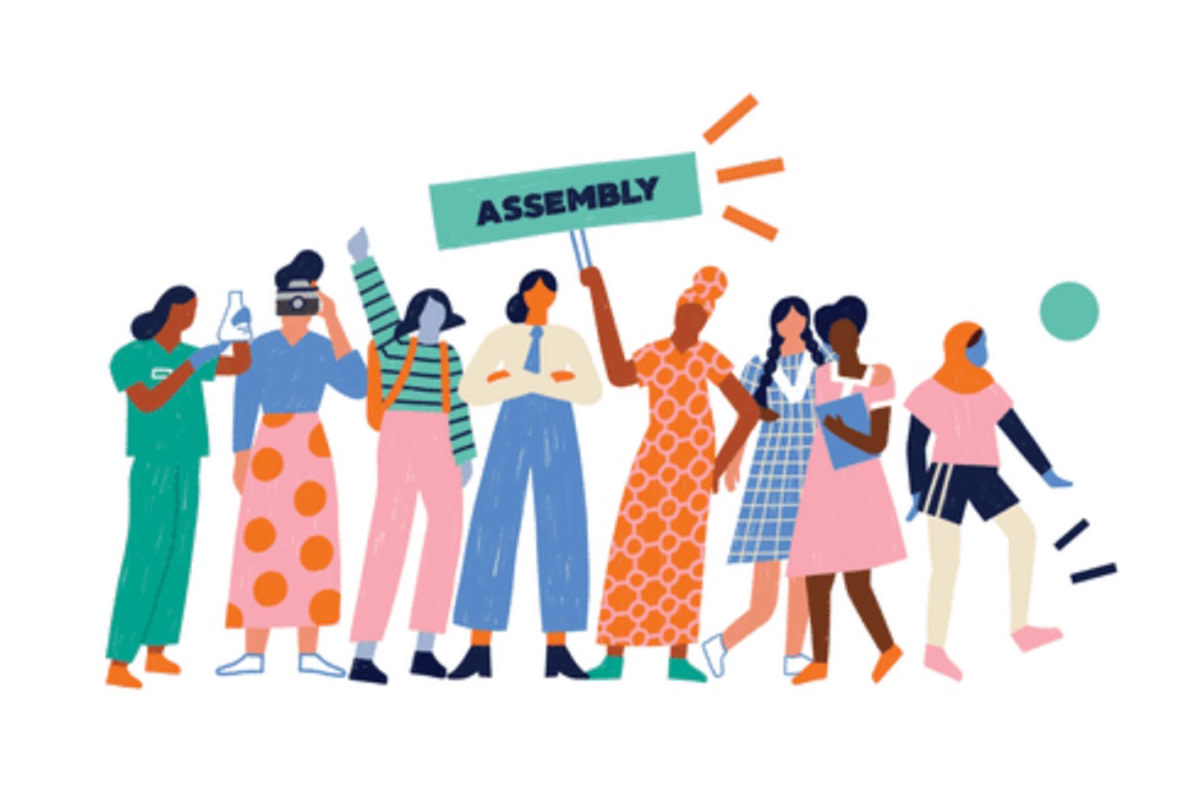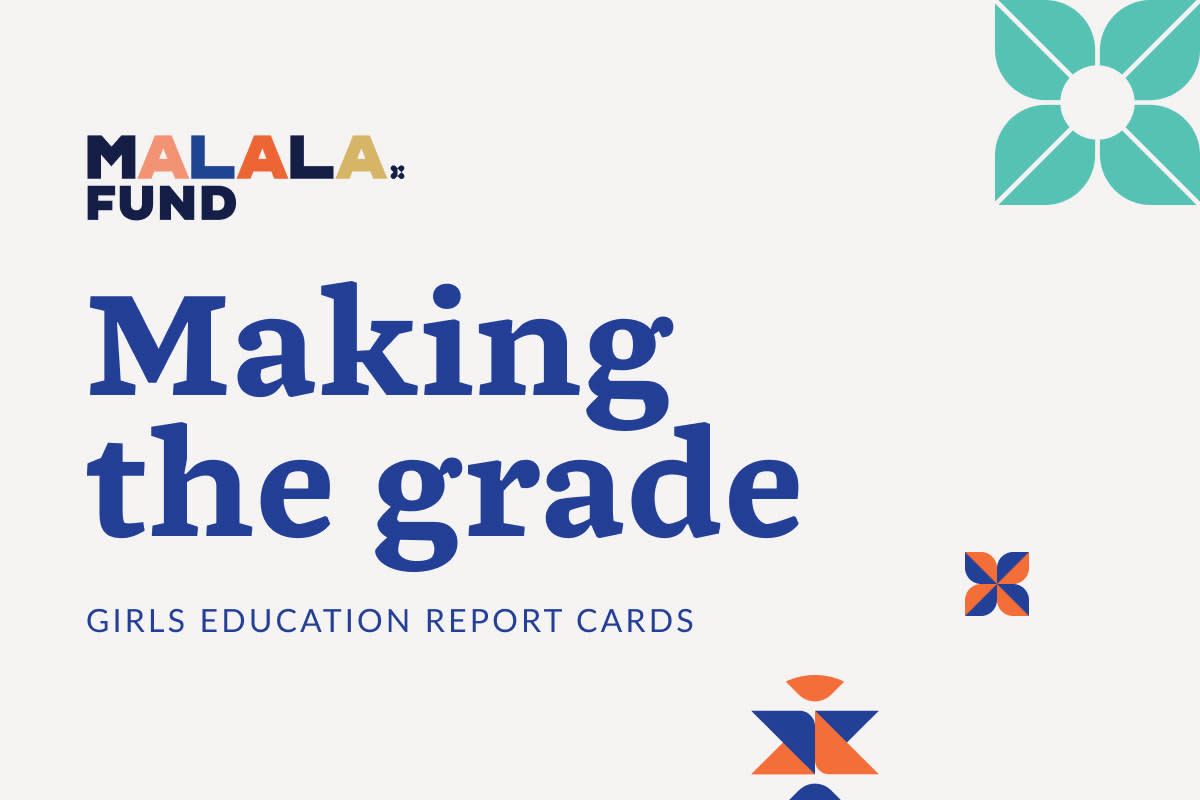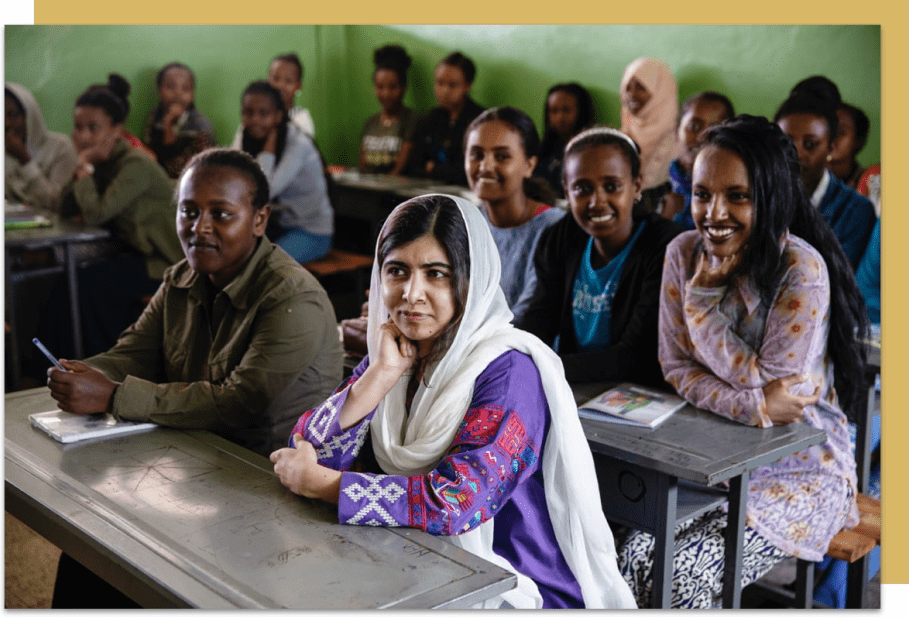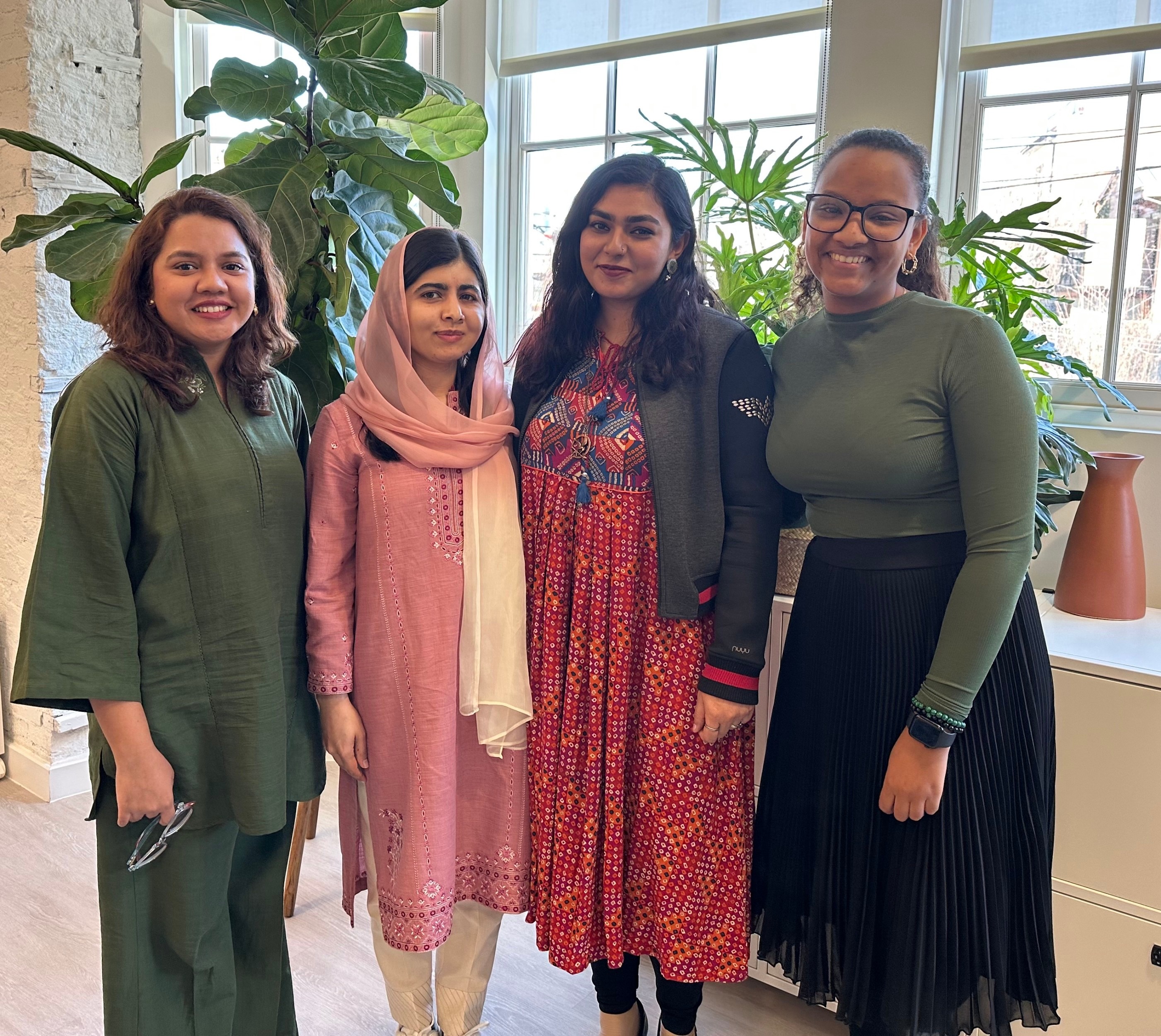
Fifteen young activists join the fellowship to expand their advocacy efforts for girls’ education.
Malala Fund is excited to introduce the second cohort of its Girl Programme Fellowship, a group of 15 young women from six countries who are passionate, issue-driven and looking to expand the impact of their advocacy for girls’ education and equality. Launched in 2021, the fellowship gives girls the tools they need to empower their communities and speak out for the causes they care about.
Over nine months, fellows engage in learning experiences, speak at global events, grow their personal networks and use the skills they acquire to develop and execute girls’ education projects in their communities. Last year, these projects varied based on girls’ individual goals. Meti, one of our inaugural fellows from Ethiopia, focused her project on developing and launching Telela, a digital app for young people to gather, talk about their mental wellbeing and access helpful resources. As part of her project, Amina, a fellow from Nigeria, raised awareness around the importance of STEM education and expanded learning opportunities for girls with disabilities using mediums like board games and local radio programmes.
“There is no shortage of bold, creative girls who are eager to drive change. We created this fellowship to provide the guidance and resources girls need to develop real life solutions and implement them effectively,” said Lena Alfi, Malala Fund’s Acting CEO. “This year’s fellows are an impressive group of young leaders and I can’t wait to learn from them and see the innovative projects they will produce.”
This year’s fellows come from Bangladesh, Brazil, Ethiopia, Nigeria, Pakistan and Tanzania. New fellow Heloise, an activist from Brazil, sees advocating for education as key to achieving gender equality and mitigating the effects of climate change. Monica from Tanzania, another new fellow, founded the organisation Women and Youth Movement (WOYOMO) to demand educational and economic justice for Tanzanian girls.
The Girl Programme Fellowship aims to help young women use their passions and skills to drive meaningful change in their communities. Malala Fund looks forward to seeing how the new fellows will build on the impressive work of their predecessors and bring new ideas and perspectives to the future of its Girl Programme.
Meet the full class of 2024 Girl Programme Fellows:
Sabana Akter (Bangladesh)
After experiencing many obstacles to obtaining her education, Sabana knows how harmful traditional gender norms can be for Bangladeshi girls. She fights for gender equality and for girls in her community to complete 12 years of school.
Suraiya Akter (Bangladesh)
As an education activist, Suraiya draws on her own experience with being forced to leave school early to empower girls and champion their stories. Her efforts focus on breaking down social barriers that prevent girls from obtaining an education.
Heloise Almeida Luna (Brazil)
An activist dedicated to fighting climate change, Heloise believes educated girls are key to protecting the planet. Her advocacy centres around improving access to education for Brazilian girls and teaching them the power of their stories.
Ruth Kebede Aytenfisu (Ethiopia)
Growing up in Addis Ababa, Ruth developed a passion for computer science. She aims to bring quality technology education to more Ethiopian girls through her advocacy efforts.
Ana Beatriz | Bea Diniz (Brazil)
Bia is a multi-talented activist from Maranhão fighting for Brazilian girls domestically and internationally. Her efforts include promoting health equality and equal opportunities for women and girls in her community.
Hassena Eberahim (Ethiopia)
Hassena dedicates her advocacy to fighting gender-based violence. She studies public health at university and wants to continue improving access to education for all girls in the Afar region of Ethiopia.
Jacquiline Godfrey Msambila (Tanzania)
As a committed advocate and mentor, Jacquiline highlights the importance of providing students with STEM education. She believes that educating girls today will lead to a better future for all Tanzanians.
Sa’adatu Saidu Idris (Nigeria)
Sa’adatu empowers girls through her volunteer efforts at numerous tech-based organisations. She knows that making quality education accessible to all girls is essential to a brighter future for everyone.
Vanessa Aquilin Kiango (Tanzania)
Motivated by the difficulties in her own education journey, Vanessa works to improve education access for Tanzanian girls. She aims to teach other girls how to use their stories to advocate for positive change.
Jane Mann-Effiong (Nigeria)
Jane is a student and volunteer journalist at a popular radio station. She hosts her own radio show on Albarka Radio Bauchi centred on sharing girls’ stories and calling on leaders to enact policies that support girls.
Urwa Naeem (Pakistan)
Inspired by her upbringing in a traditional community, Urwa works to challenge gender norms and show girls the power of learning. Her commitment to supporting out-of-school girls manifests in her advocacy and community work.
Martha Samuel (Nigeria)
Martha’s activism derives from her own experience with child labour. To prevent other girls from experiencing similar challenges, Martha helps girls in rural communities access the educational resources they need and deserve.
Monica Samwel Patrick (Tanzania)
Founder of a non-profit focused on the economic empowerment of women and girls, Monica advocates for girls’ education as a way to strengthen gender equality. She knows that access to education is key to ensuring a fair society.
Aasha Urooj (Pakistan)
Aasha encourages girls to explore their passions despite restrictive gender norms. Her advocacy combines her legal education with her dedication to women and girls’ rights.
Halima Yusuf (Nigeria)
Currently in her final year of law school, Halima champions her fellow female classmates and girls throughout Kano State. She looks forward to continuing her efforts to protect the rights of women and girls — including their ability to access education.
